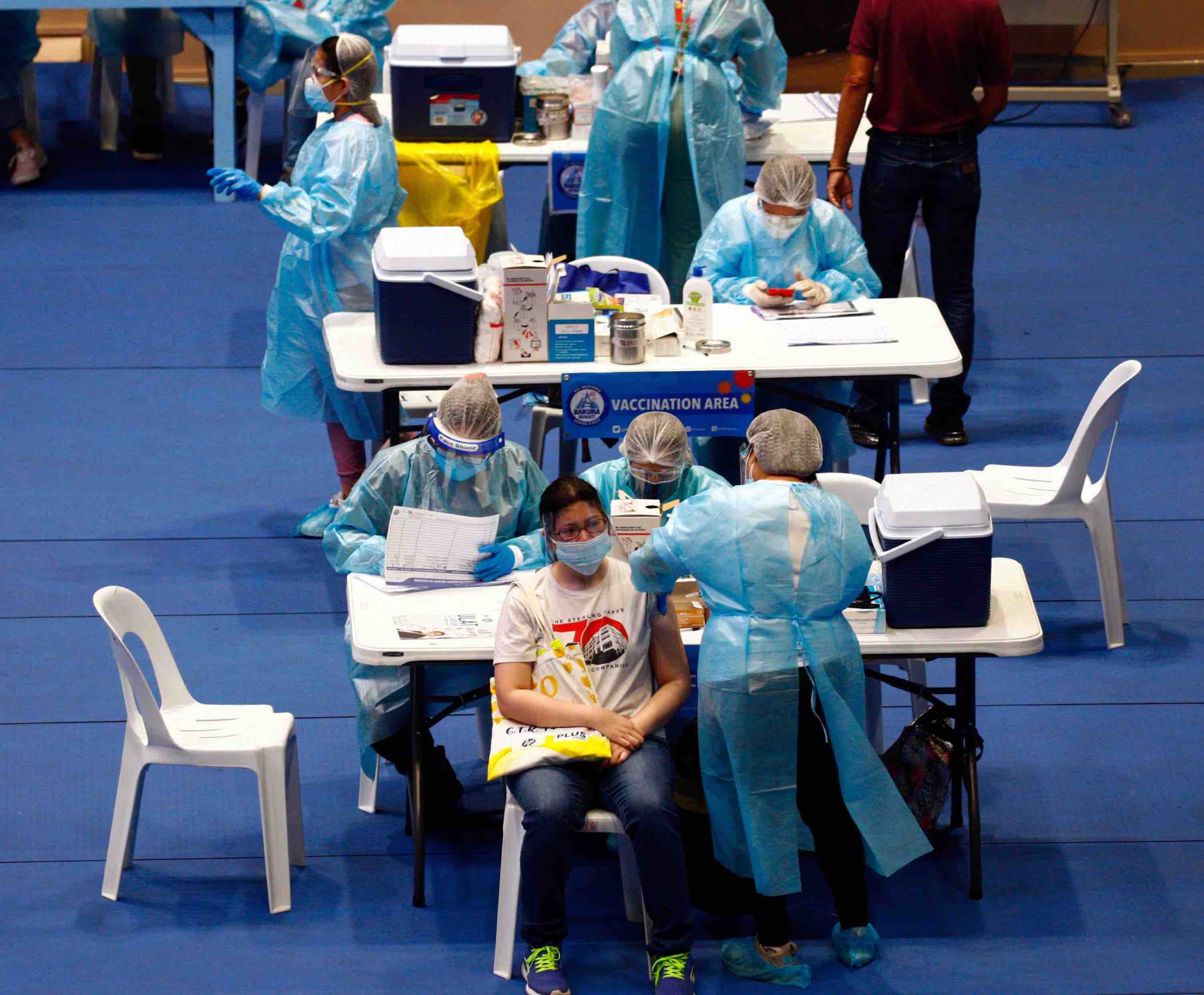Philippines to resume AstraZeneca jabs for people under 60
The Philippines has lifted the ban on AstraZeneca vaccination for people below 60 years old.
Health Undersecretary Rosario Vergeire said on April 19, “We need to recall that only a very small percentage of the population is affected by adverse effects from AstraZeneca. We will come up with guidelines on the use of AstraZeneca to include these different precautions stated by the Food and Drug Administration.”
The Philippine FDA recommended “extra precautions” for people with existing health conditions.
On April 8, FDA director general Eric Domingo recommended a pause on AstraZeneca jabs for people under 60 until it gets “clearer evidence and clearer guidance from WHO.”

He also acknowledged that the country has run out of AstraZeneca vaccine. The Philippines got 525,600 doses through the Covax program.
In Europe, there have been 222 cases of a rare thrombosis affecting the brain or abdomen among 34 million people inoculated with AstraZeneca.
On April 7 the European Medicines Agency (EMA) recommended that a dangerous type of blood clot should be listed as a “very rare side effect” of the AstraZeneca vaccine. “This thrombosis of large veins is unusually located in the brain, and even more rarely in the digestive tract,” the French Medicines Agency (ANSM) said.
Skynews reported that “there have been 79 reports of blood clots accompanied by low blood platelet count in the UK, all in people who had their first dose.”
Of these, 19 people have died but the cause of death has not been established.
Caught by the ban between doses? What happens if you had your first AstraZeneca dose before the ban and missed your second dose, or now that the ban is lifted there are no more vaccines?
Mixing vaccine brands is being considered by countries like China to improve the efficacy of its local COVID vaccines.
Time magazine reported, “While a three- or four-week gap between shots is ideal, the US Centers for Disease Control and Prevention (CDC) says you can get your second shot within 42 days of the first one and still mount a full immune response.”
“Beyond that, we start to operate in an area where there’s simply less data,” Dr. Adam Ratner, a pediatric infectious disease doctor at NYU Langone Health and a vaccine researcher, said.
The UK’s NHS is conducting a study on the efficacy of combining two different vaccines. Called Com-COV study, the trial’s purpose is to see how well people’s immune systems respond when they are “primed with one type of vaccine, then boosted with another and to see how good the response is when the second dose is separated from the first dose by different periods of time.”


